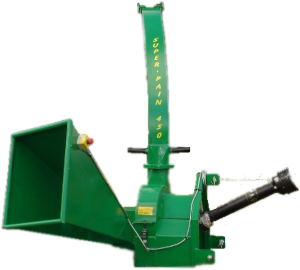The Methods of Jean PAIN, the RCW...
What is the difference between the Methods of Jean PAIN and the other way to cultivate ?
Basically, the practice of the Method of ean Pain merely bring to the soil a woody non-mineralized organic material which will encourage the emergence of a rich microbiology (fungi, bacteria, microorganisms, ...) that will allow the soil to provide all the nutrients the crop needs, when it needs it (we can call it "temporal food").
The plant's needs change at each stage of their development, it is impossible for human to give just the nutrients the plant needs temporally, which creates in other agricultural practices, deficiencies and surpluses.
Can be imagined that plants installed as and when they develop, "send" messages to "inform" the soil of their immediate needs of nutrients in quality and quantity.
Upon receiving these messages, the soil "activates" "concerned" microbiological elements that will "synthesize" the required nutrients without excess. All that said with many caution (the quotes are not there by chance).
Jean PAIN considered from the outset that it happens this way in forest's fertility, since it is the observation of this environment which gave him the idea for his "Brushwood Compost".
We are reproducing the Forest's Fertility on the agricultural soil... With some artifice, the chipper used for the method has, of course, not created the forest.
That is also why Jean PAIN speaks of "Fundamental Foof of the Soil" in his book The Methods of Jean PAIN.
And the RCW, what's the difference ?
Originally commissioned by the Canadian Minister of Agriculture, Professor Lemieux from Laval University (Quebec) came to meet Jean PAIN to know the ins and outs of this particular method very powerful ...
Professor Lemieux wanted to make "simplier" a voulu "simplifier" the process of realization of the "Brushwood Compost", by eliminating the heap fermentation.
As his first experiments of spreading chipped wood directly on the soil did not gave the expected results, he had to use pig manure re-spreading to get good results.
He wansn't satisfied with that, because these manure from industrial farms were not consistent with his beliefs.
Through his experiences, he created the method of the RCW, with the necessary restrictions in the choice of raw material to be able to do without these manure.
The results obtained with the RCW are very similar to results obtained with the Method of Jean PAIN because the RCW is based on the same basis as the Metho od Jean PAIN.
Here again, woody non-mineralized organic material is added, and culture go on without any other intake, as in the Method of Jean PAIN.
Professor Lemieux also claims the copy of the Forest's Fertility, on the agricultural soil. Of course the chipper is there too the artifice.
The Methods of Jean PAIN or the RCW ?
The opposition of these two methods has no place!
Indeed, the principle is the same: providing to the soil woody non-mineralized organic material.
So what ?
In the RCW method, woody material harvesting must be restricted to some species and limited to a diameter of 7 cm to the input of thechipper.
In the Method of Jean PAIN, only the capacity of the chipper reduces the effective diameter, and all species of plants are accepted.
This is possible thanks to heap fermentation, which will enable the transformation of biocides (essential oils, tannins, resins, ...) contained in the wood.
It is in our view the only difference between RCW and the method of Jean PAIN.
About the Method of Jean Pain, there is for some people a misunderstanding related to the word Compost.
In the Method of Jean Pain, the "heap composting" is actually just a fermentation that should in no case result in the mineralization of organic matter, contrary to what is sought in other composting methods.
To close the chapter about the RCW, we can say that for a private, it is maybe more comfortable to choose the RCW Method because a private does not obviously have enough material to realize the heap needed for a good fermentation, and because the chipper he has is limited in diameter.
For a professional, the Method of Jean PAIN is required. Not limited in selection of wood species and in diameter (excepted the capacity of the chipper), harvesting is more economical and therefore profitable.
RCW and Method of Jean PAIN, the SAME GOAL.


